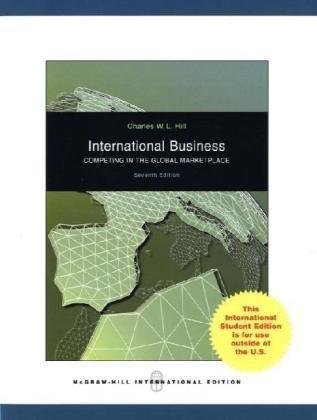3. What are the ethical issues that might arise when drawing upon guanxiwang to get things done...
Question:
3. What are the ethical issues that might arise when drawing upon guanxiwang to get things done in China? What does this suggest about the limits of using guanxiwang for a Western business committed to high ethical standards? Back in 1993, New Yorker Dan Mintz moved to China as a freelance film director with no contacts, no advertising experience, and no Mandarin. By 2006, the company he subsequently founded in China, DMG, had emerged as one of China's fastest growing advertising agencies with a client list that includes Budweiser, Unilever, Sony, Nabisco, Audi, Volkswagen, China Mobile, and dozens of other Chinese brands. Mintz attributes his success in part to what the Chinese call guanxi.
Guanxi literally means relationships, although in business settings it can be better understood as connections. Guanxi has its roots in the Confucian philosophy of valuing social hierarchy and reciprocal obligations. Confucian ideology has a 2,000-year-old history in China. Confucianism stresses the importance of relationships, both within the family and between master and servant. Confucian ideology teaches that people are not created equal. In Confucian thought, loyalty, with its related obligations to one's superiors (or to family), is regarded as a sacred duty, but at the same time, this loyalty has its price. Social superiors are obligated to reward the loyalty of their social inferiors by bestowing “blessings” upon them; thus, the obligations are reciprocal.
Step by Step Answer:

ISE International Business Competing In The Global Marketplace
ISBN: 9781260092349
7th Edition
Authors: Charles Hill, G. Tomas M. Hult






